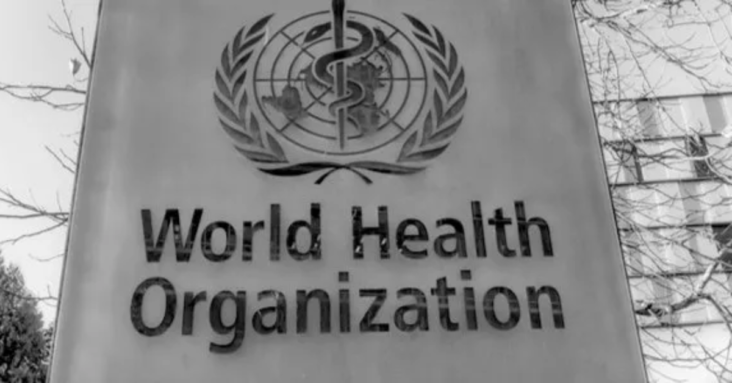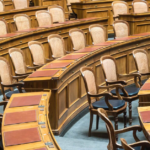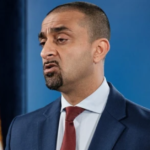
THE World Health Organisation (WHO) is proposing the adoption of a ‘Pandemic Treaty’, or ‘Pandemic Accord’ as it is now being called. On Monday, 11 months after a UK petition calling for a debate on the matter reached the threshold of signatures to require a debate in Parliament, this will take place at last.
You may be aware that the unelected Director General of the WHO, Tedros Adhanom Ghebreyesus, has been on social media recently claiming that this new treaty will not affect individual countries’ sovereignty. However, what you are not being told is that in conjunction with the Pandemic Accord, amendments to the International Health Regulations (2005) have been proposed and are being negotiated. Some of these amendments would cede unprecedented authority to the WHO and raise serious questions with regards to state sovereignty.
Amendments to the International Health Regulations can be adopted by simple majority vote in the World Health Assembly, the governing body of the WHO, without subsequent national ratification procedures. This means that as things stand, these changes can sail through without parliamentary scrutiny and without you, the public, being informed.
Instead of being advisory, as is any guidance currently coming out of the WHO, some of the new amendments propose that WHO advice would be legally binding on all state parties and their people.
If the amendments are adopted, the unelected and unaccountable Director General of the WHO would be able unilaterally to declare a public health emergency without seeking any advice from member states or WHO committees. There would be no committees involved in the decision-making, nor would there be any checks and balances on the Director General’s decision. So one unelected, unaccountable person would have the power to take decisions that could result in restricting the lives of billions of people. This is an unimaginable concentration of power.
Amongst the more disturbing changes proposed is the removal of a clause requiring the WHO to consider an individual’s human rights in the application of the International Health Regulations. The WHO will be empowered to issue binding requirements for lockdowns, masks, quarantines, border closures, travel restrictions, mandatory vaccinations, mandatory medical examinations and other measures that they see fit.
Proposed amendments also seek to implement an international database system enabling nations to enforce travel restrictions through tools such as vaccine certificates, prophylaxis certificates, testing and recovery certificates along with passenger locator forms and a traveller’s health declaration, all preferably tied to a personal QR code.
The proposals further involve significantly increasing the WHO’s funding. Part of this additional funding is required to set up an extensive surveillance process in all member states, which the WHO will verify regularly through a country review mechanism. Both the IHR amendments as well as the proposed Pandemic Accord also encourage systematic global collaboration to counter dissent from official governmental or WHO guidance.
The WHO further seeks to oversee surveillance for new and variant viruses, identify them, determine their ‘threat’ and implement a response.
This will create a self-perpetuating pandemic industry with major internal conflicts of interest, funded by the world’s taxpayers but controlled by a UN agency that has no national legal oversight and little accountability. To justify continued funding, there will be a massive incentive to declare and respond to perceived threats, restricting the lives of member state populations whilst accruing profit to WHO sponsors through pharmaceutical recommendations and mandates.
All or some of the amendments may be passed as soon as next month and at the latest in May 2024. Once they have passed, they become binding on all 194 WHO Member States, with countries retaining the right to reject them within a period of ten months.
At this time, strangely, neither the UK nor any other member states are discussing these amendments which would give the WHO unprecedented powers. Those who think that the WHO has nothing to do with them or their country policy should think again.
The first step in combating this unacceptable ceding of governmental authority to an unelected supranational organisation (and by default to the special interests that have compromised it) is to raise public awareness. The World Council for Health (WCH) and Children’s Health Defense, working closely with other concerned organisations and people’s movements, are launching a campaign called The Great Freeset with suggested actions that we can take to address this global threat to our health and sovereignty.
The WCH, a people’s health and sovereignty initiative, has raised a petition to hold a parliamentary vote in the UK on whether to object to previously and quietly passed 2022 amendments and also calling for a vote to reject most of the additional 307 amendments under negotiation. We have achieved the 10,000 signature mark, which requires the UK Government to respond. However, it would be helpful to achieve 100,000 signatures and oblige the Government to consider holding a debate in Parliament. Details of this petition can be found here and any UK citizen can sign.
We cannot stand by while outrageous monopoly powers over public health are given away to the WHO. We have been warned by Biden that ‘a second pandemic is coming’. The proposed amendments to the International Health Regulations, as well as the Pandemic Accord, are being sold to us as improving future pandemic responses, when in reality they would lead to the same mistakes as seen during Covid being made all over again.
Let us ever be mindful of the adage ‘The welfare of mankind has long been the alibi of tyrants’.



